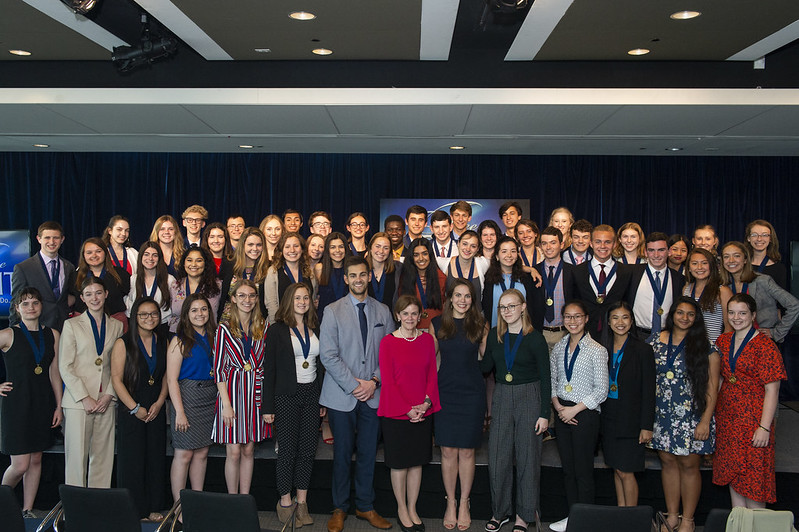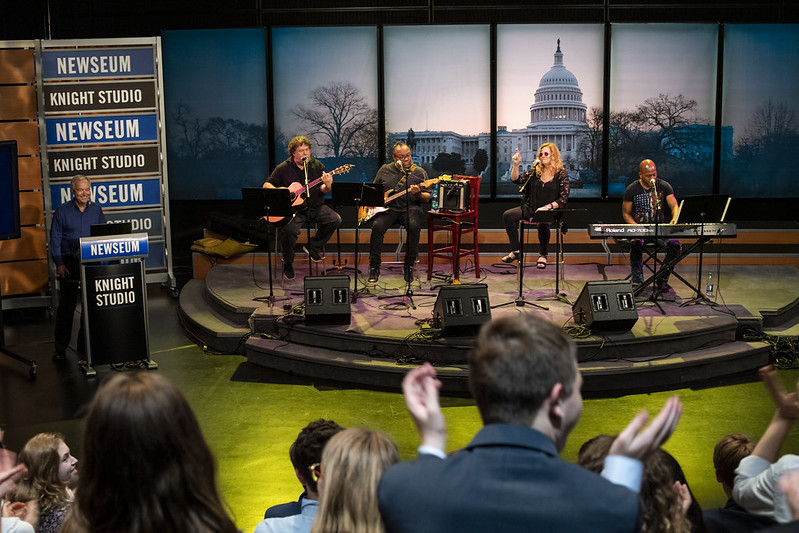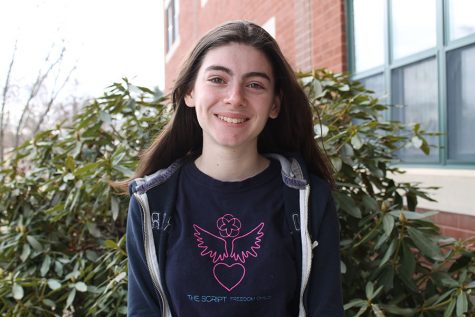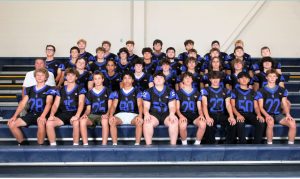The First Amendment and free spirits
The 2019 Free Spirits pose for one final group photo after the graduation ceremony of the Al Neuharth Free Spirit and Journalism Conference in Washington D.C.
October 1, 2019
According to the 2019 State of the First Amendment survey conducted by the Freedom Forum Institute, only 4 percent of participants could name the Freedom of Petition, 12 percent could name the Freedom of Assembly, 22 percent the Freedom of the Press, 29 percent the Freedom of Religion, and 71 percent the Freedom of Speech. Despite the already dishearteningly low numbers from this year, the Forum was pleased to see a “nearly a 20 percent increase compared to 2018 survey results,” of those who could identify the Freedom of speech.
The First Amendment is one of the essential parts of the Constitution that protects the inalienable rights of the American citizens, so why don’t people seem to know their rights?
I personally did not commit the First Amendment to memory until the Al Neuharth Free Spirit and Journalism Conference in early June, 2019, when I was anxiously selecting the freedom that was most important to me before stepping out onto the floor of Knight Studio in front of a camera and the Free Spirits from 50 other states.
The Al Neuharth Free Spirit and Journalism Conference is a unique experience for aspiring journalists to learn from each other, professionals in the field, Al Neuhath’s family and testimonials, as well as the First Amendment itself. Hosted by the Freedom Forum Institute in DC, the program champions the First Amendment as a pillar of democracy that must be upheld in the media. On the first night, participants and one student journalist from each state were asked to explain their favorite freedom as well as what the First Amendment means to them.
I chose the Freedom of Petition.
As a student from the state of New Hampshire, I knew I wasn’t guaranteed First Amendment rights in schools, despite the state mantra: “Live Free or Die.” I was fully aware that the school could legally silence my voice at any moment, so I held the concept of petition for redress of grievances close- my perceived secondary option for expression as a highschool student.
Yet only hours before offering my take on the First Amendment, I sat next to several other Free Spirits, frantically typing “the first amendment” into the search bar of my phone. Only a few could name all five freedoms on the spot, despite all of our states having some sort of civic and government educational obligation. I’d memorized the First Amendment only months before for the Civics final, one course that satisfied the N.H. state requirement for civic education. Apparently all but the basic provisions of the First Amendment didn’t quite stick with me.
Unfortunately, my lapse in memory was not solely due to nerves; I was not the only student to forget the five freedoms after having them drilled into my head for a four month period. In a survey conducted to determine the percent of Hollis Brookline High School students that could name all of the aspects of the First Amendment, only 10 percent of respondents were able to do so. The majority of participants had taken a civics course or were currently enrolled in a civics class as well.
Just like the rest of America, it turns out the students and staff of Hollis Brookline High School are largely unaware of their First Amendment rights.
The lack of conscious recognition and knowledge of these basic freedoms isn’t the fault of the Social Studies Department, or even the state itself. A topic or concept has to truly matter to an individual to become permanently etched in their memory. When memorizing the First Amendment for a quiz or a grade, the freedoms become nothing more than more monotonous material, despite a teacher’s best efforts to make them come alive for the students.
I have the Conference and my fellow Free Spirits to thank for helping me fully comprehend the gravity of the First Amendment and the broad intersection with the press, student rights, musical expression and everyday life.
Are you a junior in high school dedicated to the freedom of the press and interested in pursuing a career in journalism? Apply to represent your state at the 2020 Al Neuharth Free Spirit and Journalism Conference!














![Students in Archaeology use tools in a mock excavation. As a class that focuses on hands-on learning, students are able to gain crucial life skills. “[The class] is more hands-on than I thought, and I'm learning way more with physical activities than I do in the classroom,” said student Tess Brown ‘25.](https://cavchronline.com/wp-content/uploads/2024/11/IMG_8390-e1733078359165-278x300.jpg)
